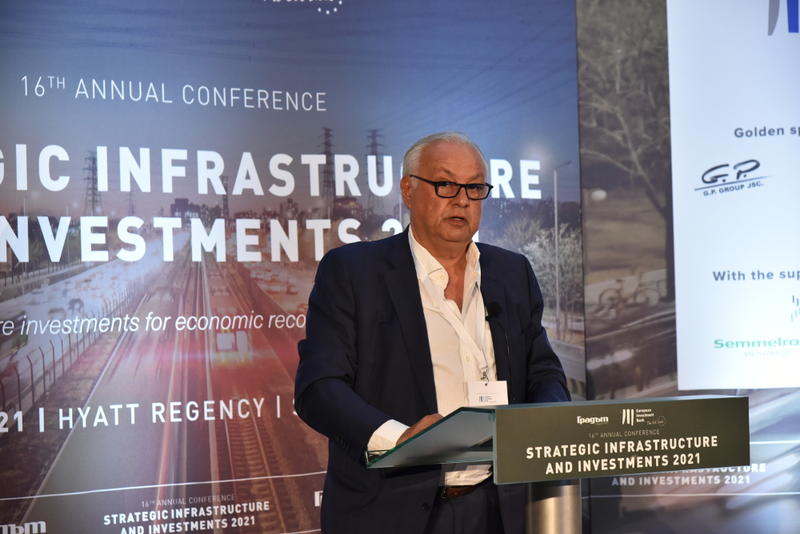The focus of the new remediation projects will be on their resilience
The focus of the new remediation projects will be on their resilience
By Ministry of Regional Development and Public Works
The focus of the new renovation projects on buildings will be on their resilience. This was said by arch. Georgi Kolarov, Adviser to the Minister of Regional Development and Public Works, at the Forum "Strategic Infrastructure and Investment 2021"
On behalf of Minister Violeta Komitova, arch. Kolarov greeted the participants, who have the opportunity to discuss one of the most important topics in European politics - the topic of rebuilding the European Union after the pandemic and the transition to a green economy.
The way to the realization of this task passes through the implementation of various environmentally and economically sound solutions with extensive use of digital technologies. But one of the most important elements in the overall policy of decarbonisation and climate neutrality is the renewal of the building stock. EU buildings account for 40% of energy use and 36% of carbon emissions. By 2030, the EU must reduce its emissions by 60% and energy consumption by 36%, so the implementation of comprehensive measures to improve energy efficiency is crucial.
Arch. Kolarov presented the main principles in the documentation prepared by the Ministry of Regional Development and Public Works.
A Methodology for residential and non-residential buildings will be developed. "We put energy efficiency first as a guiding, horizontal principle for resilience. In addition, we continue to apply environmental, economic and social criteria in a range that meets the specifics of sustainable energy renewal", said Arch. Kolarov.
"Green public procurement" is being introduced for non-residential buildings and those for housing are recommended as a basic tool for achieving sustainable practices. With the help of life cycle assessment of the buildings the economic and ecological expediency of the projects will be achieved. They will focus on the efficient use of resources on the principles of the circular economy. Decarbonisation and climate neutrality will be achieved by reducing primary energy costs through large-scale integration of renewable energy sources.
Basic models for renovation of different types of buildings will be developed. The requirements for thermal comfort, air quality and accessible environment will be met.
Reforms are also envisaged that will facilitate the implementation of projects. Namely, the creation of units on the principle of one-stop shop, information system for digitization of data on administration and control of the process, additional measures for reliable and accurate determination of energy performance of buildings, life cycle analysis and others. The implementation of innovative solutions and pilot projects that demonstrate the benefits of remediation are envisaged.
According to arch. Kolarov society will be convinced that this is not about gluing styrofoam, but about a sustainable construction process, which aims not only to achieve European goals, but also to improve the living conditions of citizens.
It will be of great importance to improve the administrative capacity of state and municipal officials working in this field, as well as all participants in the investment process. Training and qualification actions will be taken, which will create new jobs.




